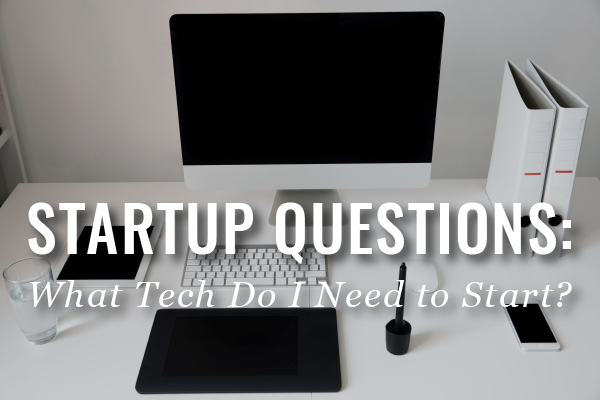Law practice startup tech can shape your work-life balance. We saved the best for last in our Startup Questions series!
The first five steps to get moving on your law practice startup tech:
- A laptop or tablet is ideal for mobile practitioners, and can serve as a primary computing device. A redundant backup system using external hard drives and cloud backups is essential. A sampling of back up providers and manufacturers include: Seagate, Western Digital, Carbonite, Crashplan, BackBlaze, Drobo, and SpaceMonkey.
- Many practitioners start off with a free Google Voice number ported through a smartphone. Skype and other Voice Over Internet Providers (VOIP) are alternative simple and cost-effective options.
- Building a paperless law office is cheaper and more efficient than maintaining paper files. The Fujitsu ScanSnap is one popular device. When purchasing a scanner, you should consider speed, maximum papers, multifunction capabilities (if needed), and supporting software (optical character recognition should be included).
- Word Processing Software. You’ll need a program to draft documents. Top options include Microsoft Work via Microsoft 365, Google Docs via Google Apps for Work, and Pages for Mac with iCloud. There are also free alternatives, including LibreOffice, NeoOffice, and OpenOffice.
- Law Practice Management System (LPM). One of the best investments you can make in your practice. LPM systems can be used for client, contact, and matter management; time and billing; trust accounting; document and email integration; calendaring and docketing; and more. Note: Many LPM programs don’t provide a full financial management tool for accounting, payroll, and expense reporting purposes, and thus alternatives such as Quickbooks or Xero should be contemplated.
Technology is no longer the “future” of law practice, it is the present. Attorneys now have a obligation under the Massachusetts Rules of Professional Conduct to “keep abreast of changes in the law and its practice, including the benefits and risks associated with relevant technology . . . .” (RPC 1.1, Cmt. 8)
Leveraging law practice startup tech can provide instant benefits, including increasing productivity, efficiency, and minimizing malpractice risk. While there is no right answer as to the specific technology you should purchase, we do have suggestions for the basic technology that you need in a modern law office and best practices to ensure that you protect yourself and your clients.
LEARN MORE
Hardware
Paperless
Cloud Storage
Law Practice Management Software
Financial Management Software
Legal Research Tools
Backup Systems
RESOURCES
ABA Legal Technology Resource Center, Helping Lawyers Solve the Technology Puzzle
FURTHER READING FROM OUR LENDING LIBRARY
The 2014 Solo and Small Firm Legal Technology Guide: Critical Decisions Made Simple (S. Nelson, J. Simek, and M. Maschke, American Bar Association)
This content appears in our Startup Kit. Find more here!
And for more guidance on starting your own firm, sign up to attend a workshop here.




